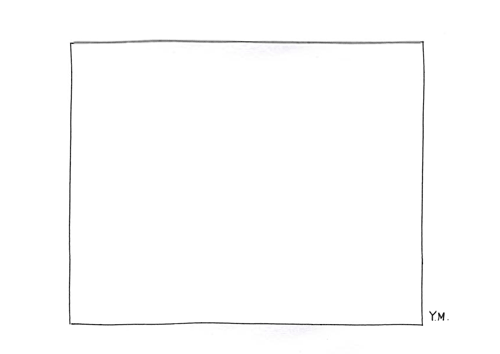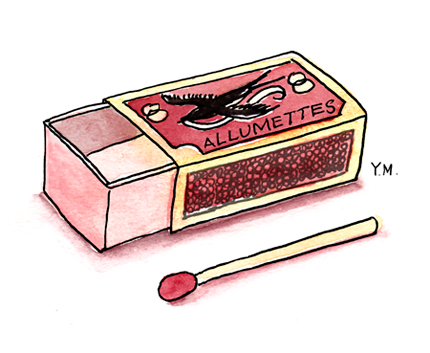French and English share the same alphabet, and also according to Wikipedia, many English words have a French origin.
So why is learning French difficult? It is because of the pronunciation. French and English doesn't have the same phonetics.
Le Français et l'Anglais partagent le même alphabet, et d'après Wikipedia, de nombreux mots en Anglais ont une origine Française.
Alors pourquoi est-ce si difficile d'apprendre le Français ? C'est à cause de la prononciation. Le Français et l'Anglais n'ont pas les mêmes phonèmes.
French children learn the alphabet then learn the basic phonetics rules before they learn to read. Also, they learn a word always with an article to learn the gender. Ideally, all French language students should learn like French children.
Les enfants Français apprennent l'alphabet, puis les règles phonétiques de base avant d'apprendre à lire. De plus ils apprennent toujours les mots avec un article pour apprendre le genre. Idéalement, tous les étudiants en Français devraient apprendre comme des enfants Français.
For example, in French "ai" sounds "è" ("ay" in English).
If you did not know the rule, you don't know how to pronounce the word, "une maison" (a house). This is my own story, when I was taking the French class in 7th grade, the class went over the French phonetics lesson very briefly so I was lost. I did not know how to pronounce "une maison".
Many years later, I came to live in Paris, and the lack of this very basic French phonetic lessons still haunts me. I failed to master French phonetics, so sometimes I still pronounce words wrongly.
Par exemple, en Français "ai" se prononce "è" ("ay" en Anglais)
Si vous ne connaissez pas cette règle, vous ne savez pas comment prononcer le mot "une maison". Ceci est ma propre histoire, lorsque je prenais des cours de Français en "7th grade" (eq. 5è en France), les cours sont passés très brièvement sur la phonétique en Français et j'étais perdue. Je ne savais pas prononcer comment prononcer "une maison".
Des années plus tard je suis venue vivre à Paris, et l'absence des ces lessons de phonétique de base continue à me hanter. J'ai échoué à maîtriser la prononciation du Français et quelquefois je continue à mal prononcer les mots.
I have taken phonetic lessons, but none of them made the lessons simple enough. So it is my goal to create the easy to learn the basic(*) French "ABC & Phonétique" for a beginner French language student.
J'ai pris des cours de phonétique, mais aucun ne proposait des leçons suffisamment simples.
Mon but est donc de créer une méthode facile pour apprendre les bases (*) de "l'ABC du Français et de la phonétique", pour un étudiant débutant en Français.
It is daunting to learn French phonetics because it is not only the 26 alphabet sounds but over 140 sounds to learn. However, after they learn to decode the sounds, students can pronounce the words confidently, and also they will be able to learn many new words and be able to pronounce correctly.
C'est rebutant d'apprendre la phonétique Française parce qu'il ne s'agit pas seulement de la prononciation des 26 lettres de l'alphabet, mais de près de 140 sons à apprendre. Pourtant, après avoir appris à décoder les sons, les étudiants pourront prononcer les mots aves plus de confiance, et seront capables d'apprendre de nombreux nouveaux mots et de les prononcer correctement.
"ABC & Phonétique" illustrates the simplified French phonetics, and all nouns are illustrated to make the lessons joyful.
"ABC & Phonétique" illustre la phonétique Française simplifiée, et tous les noms sont illustrés pour rendre les lessons distrayantes.
So, here is the simplified "A" page from "ABC & Phonétique".
Pay attention to the colors of the words. Red color = Feminine word and Blue color = masculine word.
Par exemple, voici la page simplifiée du "A" de "ABC & Phonétique".
Prêtez attention à la couleur des mots. Rouge = mot féminin, Bleu = mot masculin.
Simplified(*) French Phonetics - "A".
Phonétique Française simplifiée(*) du "A"
"ac" is in the word "un sac" (a bag).
"al" is in the word "une allumette" (a match).
"ar" is in the word "un arbre" (a tree).
"ai" is in the word "un aigle" (an eagle).
"ai" = "è" = "ei" = "est"(*), pronounce the same.
"an" is in the word "un gant" (a glove).
"an" = "am", pronounce the same.
"an" is nasalized vowel.
"au" is in the word "une chaussette" (a sock).
"au" = "o", pronounce the same.
(*) There are many exceptions in French phonetics, for example:
"est" - as the verb "to be" ("il est" = "he is") - will pronounce like "è" ("ay"), not pronouncing the letters "s" and "t".
"est" - as the geographic direction "east" ("à l'est" = "to the east") - will pronounce "è'st", including the sound "'st".
... same writing, different words, and different pronunciation.
I am creating "ABC & Phonétique" to help beginners to learn the basic of French phonetics, not to discourage them with the same over complicated lessons I faced when I was a student.
So the book will illustrate "basic" rules - mainly two or three letters sounds -, the more complicated rules - and exceptions - will not be covered.
Students who would want to go further and learn the complete and perfect French pronunciation of French language will be happy to take advanced level lessons, with professional teachers like Michel Garçon.
(*) Il y a de nombreuses exceptions dans la phonétique du Français, par exemple :
"est" - du verbe être ("il est") - se prononce "è", sans prononcer les lettres "s" et "t".
"est" - de la direction géographique ("à l"est") - se prononce "è'st", en prononçant le son "'st".
Je crée "ABC & Phonétique" pour aider les débutants à apprendre les règles de base de la phonétique, pas pour les décourager avec les leçons trop compliquées auxquelles j'ai fait face lorsque j'étais étudiante.
Donc le livre va couvrir les règles "de base" - principalement deux ou trois lettres -, les règles plus compliquées - et les exceptions - pourront ne pas y être présentées.
Les étudiants qui désireraient aller plus loin et apprendre la parfaite et complète prononciation de la langue Française seront heureux de prendre des leçons de niveau élevé, avec des enseignants professionnels comme Michel Garçon.









No comments:
Post a Comment